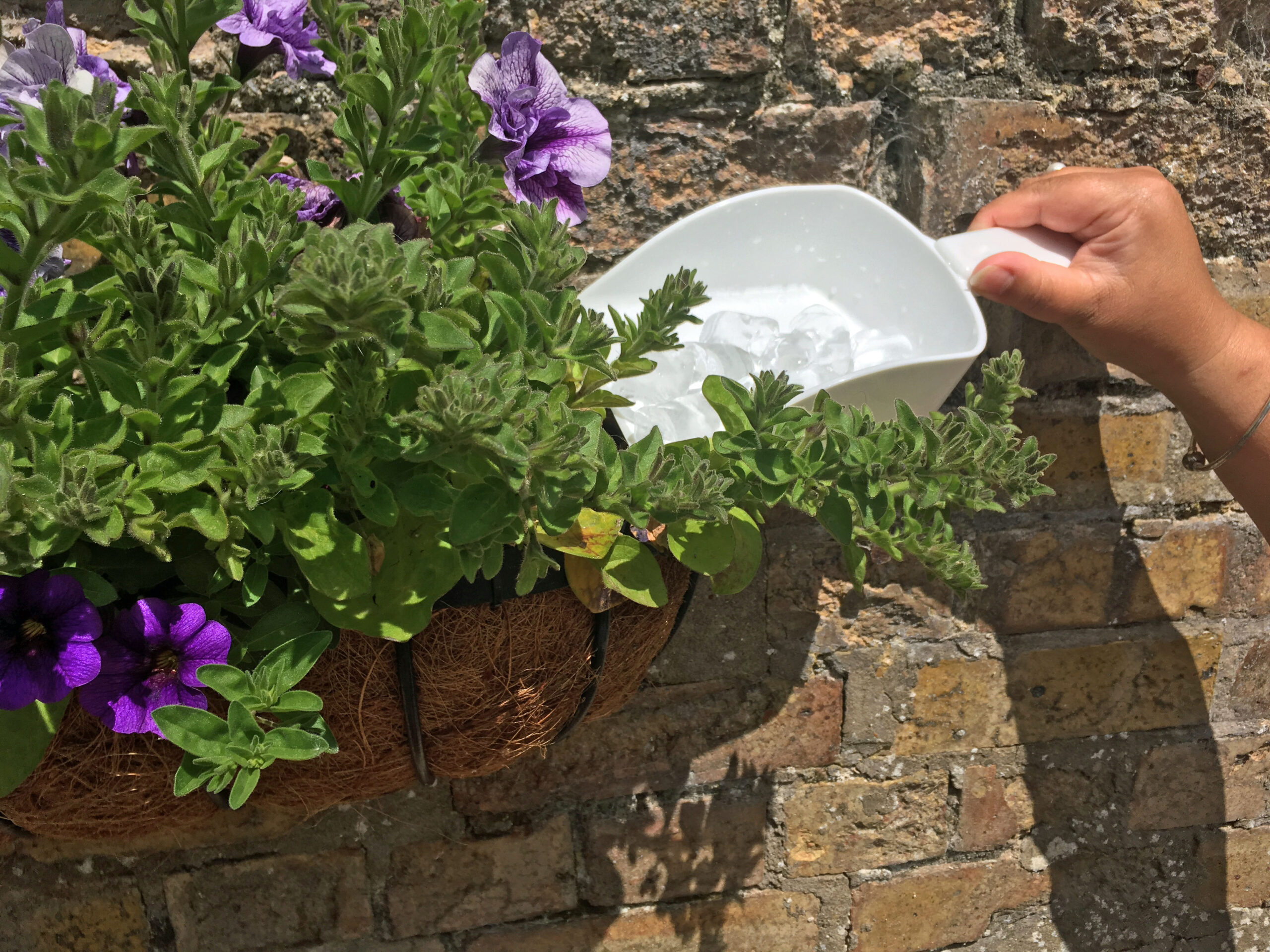 Hubbard Systems shows how to utilise leftover ice cubes in a hygienic and environmentally friendly way
Hubbard Systems shows how to utilise leftover ice cubes in a hygienic and environmentally friendly way
There’s often ice leftover in an ice maker’s storage bin when staff come to clean it. So what should be done with it after the machine’s been cleaned? Usually it’s chucked out which is an absolute waste, but it’s not hygienic to serve it in drinks. The ice experts at Hubbard Systems, the company that markets Scotsman ice machines in the UK, suggest an environmentally friendly solution – use excess ice cubes to water plants.
Best practice for ice machine hygiene means that appliances need to be regularly cleaned, with storage bins needing to be emptied, washed and sanitised on a weekly basis. A maintenance schedule should be put in place for the components that require regular cleaning, such as an anti-bacterial system, where the bag will need to be changed every month. Before cleaning the storage bin, any leftover ice needs to be taken out.
Poor hygiene standards amongst staff is one of the main reasons for compromised safety, says Hubbard’s technical and aftercare manager, Mark Stebbings. “Clean yourself, clean the machine and don’t pick up ice with your hands – use a scoop. Ice is a food so staff should always wash their hands before and during service. As for the machine, follow the manufacturer’s cleaning instructions. They shouldn’t be complicated.”
Once the machine has been cleaned, any leftover ice cubes can be used to great effect for watering plants. Using ice cubes is an ideal method for watering hard-to-reach plants, such as those in hanging baskets, because it eliminate the need to clamber up a step ladder with a heavy watering can and reduces the chance of flooding.
Surplus ice cubes are also the perfect solution for more fragile plants, which are from arid environments and will perish when overwatered. Ice cubes are the perfect choice for a slow-melting source of hydration. Meanwhile, because of the way machines make ice, it’s actually a purer source of water than direct from the mains. This purity of ice comes in handy when watering plants that are naturally mountain stream dwellers, and is a more sustainable alternative than buying bottled water for the job.
“Using ice cubes to water plants is a common practice in many warmer climates” says Mark.
“In the UK, warmer weather is encouraging green fingered caterers to do the same.”
Anyone looking for guidance on cleaning ice machines should find Hubbard’s ‘how to’ videos useful. They can be found in the video area at scotsman-ice.co.uk.
